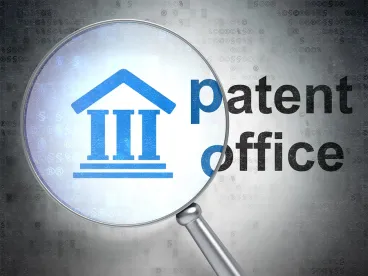Addressing the “real parties in interest” requirement and claim construction issues in an inter partes review (IPR), the Patent Trial and Appeal Board (PTAB) sanctioned the petitioner for failing to disclose a corporate merger that occurred during the trial, and clarified that while the Phillips district court standard is used to construe the claims of an expired patent in an IPR proceeding, those claims do not receive the presumption of validity under § 282. Atlanta Gas Light Co. v. Bennett Regulator Guards, Inc., Case No. IPR2015-00826 (PTAB, Dec. 6, 2016) (Boucher, APJ).
In a final written decision, the PTAB found all claims of Bennett Regulator’s patent to be unpatentable. Bennett Regulator requested rehearing and also sought sanctions against the petitioner, Atlanta Gas Light. According to the patent owner, because the petitioner had failed to alert the PTAB to a real party-in-interest resulting from a corporate merger occurring prior to issuance of the final written decision, the final written decision should be expunged and the petition dismissed with prejudice. The PTAB had terminated the same petitioner’s earlier IPR against the same challenged patent for failure to list all real parties-in-interest in the petition for that proceeding, in particular a corporate parent. In this case, the petitioner admitted merging with a subsidiary of The Southern Company but argued that The Southern Company is not a real party in interest because “it is an entirely separate corporate entity and has not controlled, funded, or had the opportunity to control or fund this IPR.” The PTAB disagreed, finding that the merger has meaningful effects that impose an obligation on the petitioner to apprise the PTAB of the merger. The PTAB also underscored the central nature of the petitioner’s corporate parent in the dismissal of the first IPR, ultimately deciding that sanctions, in the form of fees and costs subsequent to the final written decision, were warranted. However, the PTAB determined that expungement of the final written decision was not warranted because the petitioner’s failure had not harmed the patent owner.
In arguing for rehearing, the patent owner relied on Innolux Corp. (a non-precedential institution decision that issued soon after inception of the America Invents Act) for the proposition that, in an IPR, claims of an expired patent “are to be construed to preserve validity in the case of ambiguity.” The PTAB looked to the Federal Circuit’s 1985 explanation in In re Etter (en banc) that the district court presumption of validity, rooted in § 282, was inapposite for inter partes reexamination proceedings before the US Patent and Trademark Office (PTO). In Etter, the Federal Circuit explained that the idea that § 282 presumption must be applied to PTO proceedings “misconstrues the purposes for which that statute [was] enacted.” The PTAB next considered the Supreme Court of the United States’ analysis in Cuozzo (IP Update, Vol. 19, No. 7), in particular the statement that “[a]lthough Congress changed the name from ‘reexamination’ to ‘review,’ nothing convinces us that, in doing so, Congress wanted to change its basic purposes, namely, to reexamine an earlier agency decision.” The PTAB reasoned that because the Supreme Court had endorsed the broadest reasonable interpretation for unexpired patents, it logically followed that “the [PTO]’s use, in reexamination proceedings, of a claim construction standard similar to that used by district courts, but without the presumption of validity, applies to inter partes review proceedings.”
Regarding the proposed claim constructions, the PTAB observed that the patent owner sought to read in limitations not expressly recited in the claims. According to the PTAB, it is one thing to read a claim in light of the specification in order to interpret limitations explicitly recited in the claim, but it is quite a different thing to narrow the scope of the claim by reading in limitations from the specification that have no express basis in the claim.
Practice Note: The patent owner relied on a non-precedential institution decision from one of the earliest IPR trials for its contention that the presumption of validity applies for expired patents in IPR trials. Multiple later PTAB decisions, e.g., Square, Inc. v. eCharge Licensing LLC, have explained that the presumption of validity does not apply in IPR proceedings.




 />i
/>i

